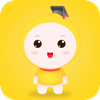Talking Counts!
Most words in a child's vocabulary come from everyday encounters with language. Children 31____ up language from books, media, and conversations.
You can increase your child's vocabulary and 32____ knowledge by having conversations with them. With babies, you can talk to them about what you're doing so they can begin to 33____ words with concepts. As your baby begins to speak, start asking, "What's that?" , when 34____ to objects or pictures. Elaborate on their 35____ answers as a way to have them listening to more words. "Yes, that is a banana! It's 36____ and smooth."
With young children, you can talk about the things you see in your 37____ on trips around town, or on television. These conversations help build a child's 38____ of his world. When reading, pause to ask questions on the story. Ask, "Why do you think he did that?" or "What do you think is going to happen 39____?" Tell your children stories from your own life, or about the day they were 40____. This helps develop their personal and cultural identity.
A. link
B. simple
C. secondly
D. neighborhood
E. yellow
F. build
G. understanding
H. pointing
I. pick
J. born
K. background
L. next









